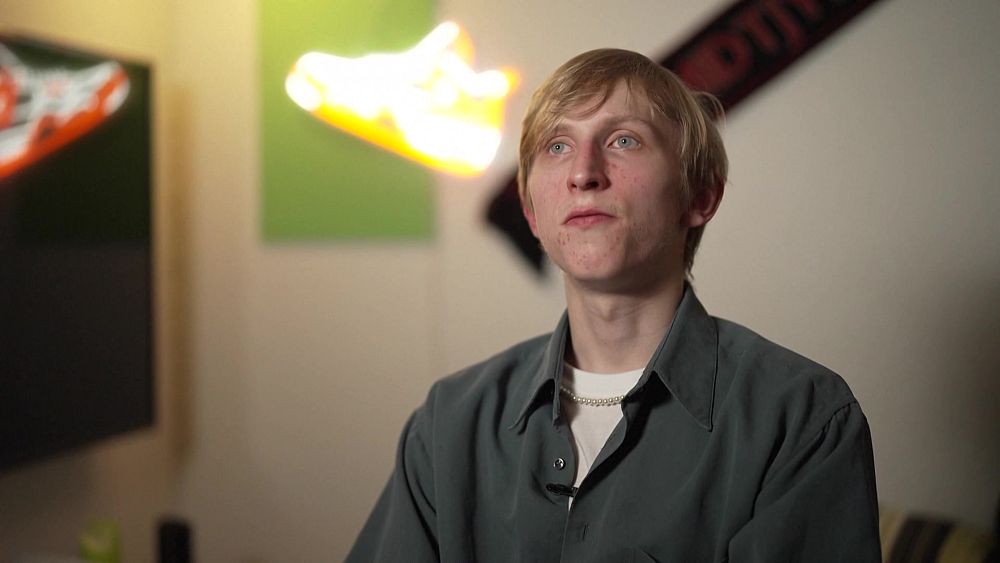
When Marcus tried «oxy» — short for oxycodone — for the first time at age 15, he was hooked by the feeling of euphoria it brought him.
Four years later, he was deep in addiction. He was intoxicated whether he was at school talking to his teachers, or playing video games with his friends.
Oxycodone is a type of opioid, a group of substances extracted from the opium poppy that includes heroin and morphine.
These are normally prescribed as strong painkillers, but their soothing effect and the temporary but intense rush of well-being they bring can quickly cause addiction.
Due to their strong sedating effect, they can also significantly slow down breathing and cause suffocation.
When Marcus couldn’t get the pills, he experienced withdrawal symptoms such as stomach ache and uncontrollable shaking.
«It was really unbearable. I felt really bad and couldn’t think of anything else,» he said.
Thanks to the support of his teacher and friends, the 19-year-old is now going through addiction treatments.
Marcus is certainly not the only teen in Denmark to get caught in the quicksand of opioids.
Torben Vangsted
Addiction consultant, Odense Drug Centre
Experts say they are seeing more young people across the country taking painkillers and developing an addiction.
“This is serious,” said Christina Ekmann, a Danish addiction treatment specialist at a youth addiction centre in the town of Greve, southwest of Copenhagen.
She said six of the 20 teens enrolled in the facility were there because of their addiction to opioid painkillers, specifically tramadol.
«Let’s say they have four friends, then suddenly we’re up to 20-30 young people taking them. And that’s just the ones we know about,» Ekmann said in an interview with Danish broadcaster TV2.
According to Danish reports last year, the problem was even prevalent among children as young as 12 in the country’s western municipalities.
They buy opioid pills either directly on the street, or through social media such as Snapchat and Tiktok.
Coping with teenage anxiety
Experts say more youths in Denmark are abusing opioids because they take the pills both to get high and to cope with anxiety.
“A large number of studies indicate that many young people are unhappy, are under pressure and do not feel good enough. For some of them, it can soothe those feelings,” Torben Vangsted, an addiction consultant at the Odense Drug Centre, told TV 2.
Experts believe that what has helped make opioids so popular is that young Danes do not consider them as dangerous drugs, but rather as medicine one can get from a doctor.
Per Bjørn Føge Jensen
Senior doctor at Copenhagen’s Rigshospitalet
These can be «good girls» you wouldn’t suspect would ever take drugs, and who themselves feel that taking pills doesn’t make them addicts, said Ekmann.
But experts warn that tolerance to opioids can come quickly, meaning bigger and bigger doses are needed for the drugs to produce the same effect.
«The more you take of it, the bigger the problem when you want to stop or can’t get hold of it. It causes anxiety and restlessness — many of the things you took it for in the first place,» said Vangsted.
Marcus, who hopes his story can help at least one person with drug addiction to seek help, agrees.
«I was asleep most of the day because it was calming me down so much, and if I wasn’t lying down intoxicated, I was having withdrawal symptoms,» he said.
«It’s not just fun and games, it’s a seriously addictive drug, and it can really ruin your life very quickly – financially, and, yeah, also physically».
Experts are now urging parents to pay more attention to their children if they show unusual behaviour.
«It’s often difficult to focus, and it also means that you all of sudden forget appointments,» said Per Bjørn Føge Jensen, a senior doctor at Rigshospitalet, Copenhagen’s largest public hospital.
«Perhaps you’re struggling to keep up with school, maybe you call in sick. All of a sudden, you end up in a place where you do not want to be».
For more on this story, watch the video in the media player above.
Video editor • Roselyne Min
